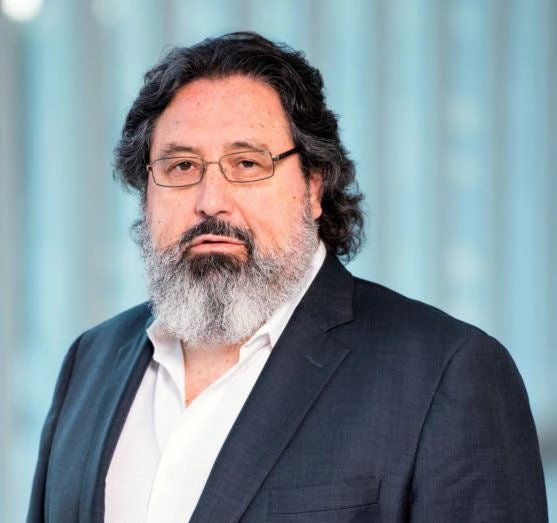
As countries look to domestic resources to help meet the ambitious development agenda laid out in 2015, there is value in looking at international experiences where mineral wealth has become a dedicated revenue stream for financing development efforts, particularly for investing in human capital (via public health or education).
Why the emphasis on mineral wealth? The answer is simple. Many countries with large endowments of valuable natural resources, particularly in sub-Saharan Africa, do not fare better in terms of human development outcomes than less well-endowed countries, and in some cases often do worse.
Yet there are good international examples of spending mineral wealth in ways that benefit people, as in copper-mining Chile, diamond-rich Botswana, and oil-producing Malaysia and Norway. There’s also one in the United States – Texas.
We share a deep connection to Texas and would like to highlight this state’s century-old experience as another good practice from which we have both benefited. While it is well-known that oil and natural gas contribute to almost half of the economic activity in Texas, not many acknowledge that dedicated revenue from oil and natural gas taxes and royalties have played a critical role in funding public education that reduces poverty not just in Texas but around the world.
As mandated by the Texas constitution, the Foundation School Fund, the primary mechanism for transferring state funds to more than 1,000 school districts, is largely financed by 25% of the state’s occupation tax revenues, which include oil and natural gas production taxes. In 2014, the state’s education system received over $1 billion in revenue from these taxes.
The Permanent School Fund, a state education endowment worth $34.5 billion in 2015 (the second-largest in the United States) that is capitalized with annual oil and natural gas royalties and investments managed by the State Lands Board, supports K-12 public schools. This Fund also helps secure AAA bond ratings for school districts, enabling them to pay lower interest rates. It is estimated that the Permanent School Fund has contributed more than $23 billion to Texas schools since 1960, with about $1.7 billion being disbursed over 2014-2015.
The Permanent University Fund (PUF) is a public endowment that supports 21 institutions of the University of Texas (UT) and the Texas A&M University systems that provide educational opportunities to close to 200,000 students across the state. PUF was established by the 1876 Constitution of the state of Texas through the appropriation of 2.1 million acres of land in West Texas. Since 1923, when oil began to be drilled on what was once cattle-grazing land, the principal of the PUF, which cannot be spent, has included proceeds from oil, gas, sulfur, and water royalties on this land, gains on investments in the financial markets, rentals of mineral leases, and the amounts received from the sale of university lands. The income generated by grazing leases on university lands and a portion of the earnings from the endowment are distributed across the two university systems (about $650 million in 2013 alone); the rest is added back into the principal.
The PUF is managed by the Board of Regents of the UT System, which contracts with a non-profit organization for its day-to-day investment management. It grew from $11.6 billion in 2010 to over $21.8 billion in 2015 — one of the largest educational endowments in the United States, with slightly more than Stanford ($21.6 billion) but a little less than Harvard and Yale.
To prevent political interference in the management of the PUF, specific provisions are included in the state constitution limiting how much money could be withdrawn and prohibiting spending on anything outside academics.
In addition to paying taxes and royalties, the oil and natural gas industry contributes funding for special training programs in local high schools and colleges, particularly focusing on science, technology, engineering, and math. This helps the state educational system meet the demand for a skilled workforce in the Texan energy industry and gives students skills to help them find jobs after graduation.
Overall, the experience in Texas shows the benefits of a strong legal framework, well-developed institutional and governance arrangements, sound financial management of mineral endowments, infrastructure development, and political and social commitment to human capital development. Dedicated funding streams from mineral taxes and royalties can help meet both the long-term requirements for economic growth when extractive revenues dwindle, as well as the immediate need to build human capital as a key contributing factor to diversified growth and social well-being over the medium and longer term. Trade-offs made for short-term benefit rarely provide the necessary investment required to ensure shared prosperity.
Mineral-rich countries would do well in applying lessons from the Texas experience in their local contexts, particularly for mobilizing domestic funding needed to support the education-for-all agenda and the progressive realization of universal health coverage. Learning from what has worked well and not so well across the world is perhaps the path to follow in order to overcome the “poverty of imagination” that prevents the creation of more just and prosperous societies.
As we say in Texas, “Hook ‘Em Horns…”


Join the Conversation
Dear Patricio, 4 years ago we were discussing your nice paper here and its relevance, and right now with the current outbreak and pandemic, I can see how the lack of health infrastructure in my country the Democratic Republic of Congo is a big issue. 60% of our budget is coming from mining industries, but there is a lack of leadership about our education system and health system. So I came here reading... again and researching references from your paper.
Read more Read less